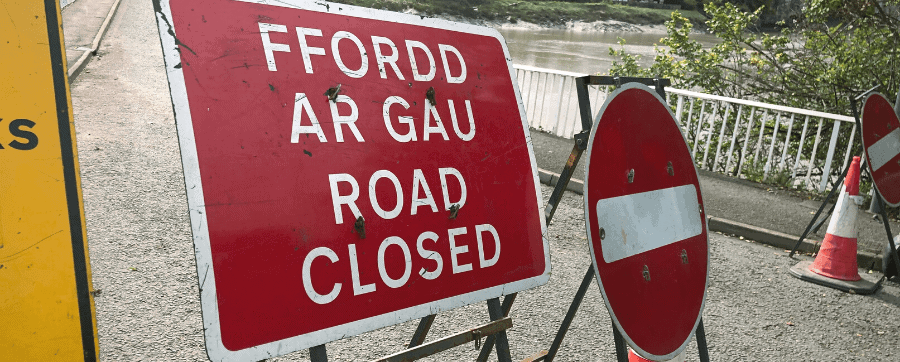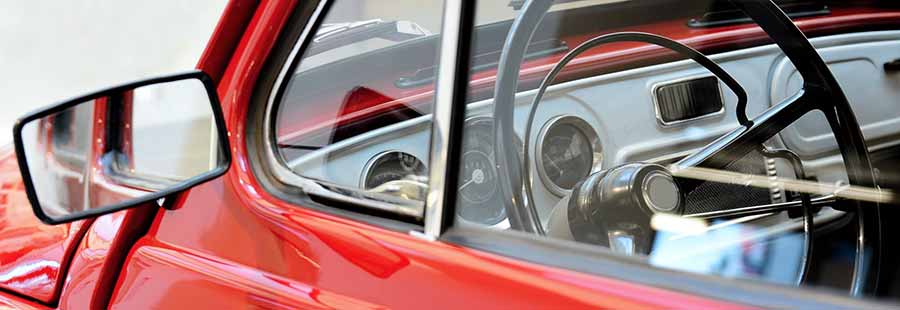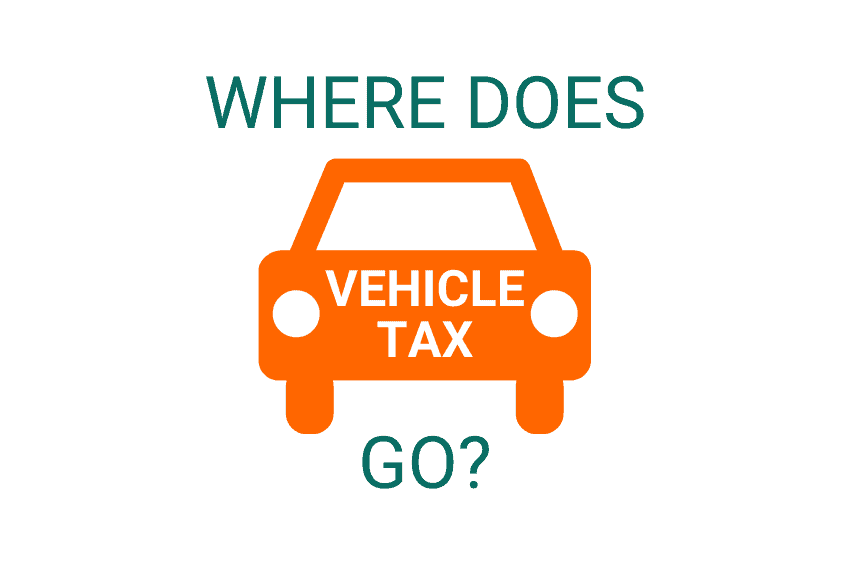Vehicle Tax, also known as Vehicle Excise Duty (VED), and once better known as car tax, is something that we all have to pay if we want to drive our cars. The same way you have to pay company car tax if you want to drive a company car.
Like it or loathe it, it’s a necessary part of driving here in the UK. But, where does Vehicle Tax actually go?
In this article, we explore where the money from vehicle tax goes and what it pays for.
What is Vehicle Tax?
Firstly, let’s have a look at what car tax actually is.
Vehicle tax is a tax that is levied as an excise duty (hence the name Vehicle Excise Duty) and must be paid for vehicles that are to be driven (or parked) on UK public roads. Vehicle Tax was first introduced in the 1888 budget. In 1920 it was updated so that it applied specifically to motor vehicles.
The tax we now pay as drivers in the United Kingdom goes into the consolidated fund of 1926, which was set up by the Chancellor of the Exchequer at the time, Winston Churchill.
Essentially, vehicle tax is something we have to pay in order that we are permitted to park and drive our cars on roads in the United Kingdom.
What does vehicle tax pay for?
Contrary to popular belief, road tax doesn’t actually pay for our roads. Our local and general tax pays for our roads, and the money we pay in road tax goes into the consolidation fund we mentioned above.
Once upon a time, road tax did pay for our roads. But, the motorcar boom of 1896-1936 happened and the money the government received in vehicle tax simply wasn’t enough to cover our sudden need for more roads and roads of better quality. So the authorities, both local and general, stepped in and started paying for it. And since then, our roads are funded by the government and not directly by what we pay in road tax.
You could point out that it all comes from the same consolidated fund, and you would be right. So technically some of our road tax money does pay for our roads, but it doesn’t directly pay for them. So, what does vehicle tax actually pay for?
Due to the way that the tax is divided up once it’s paid into the central government fund (where your Income Tax is also managed) it’s hard to say, exactly what your VED goes towards. However, we know that it is used to fund multiple ventures that everyone benefits from.

Infrastructure
This includes the building of new roads, as well as widening existing roads, building tunnels and the construction of all the things tha are needed to make the lives of drivers that much easier.
If you’re stuck in a tailback on the motorway thanks to roadworks just tell yourself that this is something being done to make future drives that much better.
Local projects
Taxes from the central government fund that are paid to the council go to help run the projects in their local areas.
These projects are not limited to those that are focused completely on the roads, which include road resurfacing, fixing potholes and improving car park facilities. They also include local social projects such as park upkeep and local, council-run properties such as the town hall, local museums and libraries, as well as services such as rubbish collection and street lighting.

Due to the nature of the central government fund that Vehicle Excise Duty is paid into, it’s not clear exactly where every single penny goes. Well, not specifically, anyway. We know that it goes to the same place as the monies that come from Income Tax, so it will also go towards helping fund hospitals, schools and the welfare system, as well as the railways and housing.
What we do know is that it doesn’t go solely to a fund specifically focused on the upkeep of our roads, though money from the fund is used for this.
Who pays Vehicle Tax?
Essentially, if you drive, or park your car, on UK roads then you have to pay vehicle tax.
It is also worth noting that even if you do qualify for an exemption, you are still required to apply for vehicle tax.
How do I become exempt from paying Vehicle Tax?
There are a few exemptions to every rule, and below we have listed the ways that you would qualify for an exemption to paying Vehicle Tax. However, you do still need to apply and then provide evidence for the exclusion.
Vehicles used by a disabled person
When you apply for vehicle tax you can claim a disability exemption. In order to be eligible for the exemption, you will need to meet certain criteria and the vehicle must be registered in the name of the disabled person. If you get any of the following you can apply for the disability exemption:
- The higher rate mobility component of the Disability Living Allowance
- The enhanced rate mobility component of the Personal Independence Payment
- The War Pensioner’s Mobility Supplement
- The Armed Forces Independence Payment
Disabled Passenger Vehicles
If you are an organisation that provides transport for disabled people then you are exempt from paying vehicle tax. However, this exemption does not extend to ambulances.
Mobility scooters, powered wheelchairs, and invalid carriages
In order to qualify for the exemption, any of the above vehicles must have a maximum speed of just 8mph on the road. They must also be fitted with a device that limits them to a speed of only 4mph when they’re on footways (pavements).
Historic vehicles
If your vehicle is over 40 years old as of the first of January, then you are exempt from paying any vehicle tax, which is great if you love yourself a classic car.

Electric vehicles
The rules on electric vehicles changed slightly in April 2019.
If the power of your electric vehicle comes from an external source or an electric storage battery and it is not connected to a source of power while moving (e.g. Hybrid) then it is exempt.
However, if the purchase/list price of your electric car is over £40,000 and it was registered after 6th April 2021, then you will be required to pay a tax of £335 per year.
Mowing machines
In order to qualify for the vehicle tax exemption, the mower must have been designed and produced solely for the purpose of cutting grass. This exemption does not include tractors that are used to tow gang mowers.
Steam vehicles
Though it’s not likely you’re going to be driving Stephenson’s Rocket along your local high street, if you are driving a steam-powered vehicle then you are exempt from paying vehicle tax.
Agricultural, horticultural and forestry vehicles
This includes tractors, agricultural engines and light agricultural vehicles that are primarily used off-road.
You are allowed to make short journeys on the public roads, as long as they are no longer than 0.9 miles (1.5km) on roads that are between land which is owned/occupied by the same landowner.

How is Vehicle Tax calculated?
So how is the amount of vehicle tax we have to pay worked out?
The amount of tax you have to pay depends on how much CO2 your car emits. The more CO2 your car emits, the more you have to pay. So you could call it an emissions tax if you wanted to. Vehicle tax is calculated as follows:
- First year rates
- This varies depending on the CO2 emissions
- Payments range from £0 for 0g/km CO2 emissions, to £2,135 for cars that emit over 255g/km CO2
- Standard year (second and subsequent years)
- £135 – £145
- Any car with a list value above £40,000
- This payment varies, dependent on whether your car is petrol or diesel (£465), electric (£320) or alternative* (£455)
*Alternative fuel vehicles include: hybrids, bioethanol and liquid petroleum gas.
And that’s how vehicle tax is calculated.

In Conclusion…
Hopefully, you should now have a better idea of what vehicle tax is, what it’s used for, and who is exempt from these charges. If you would like to find the perfect vehicle with a lower vehicle tax our team of Vehicle Specialists are on hand to help. You can reach us by either calling 01903 538835 or by booking a FREE consultation by clicking the banner below.





Correct me if I’m wrong. But should tractors etc that are travelling MORE than 1.5km as stated in your brief, be paying road tax. Or are they still exempt because they are an agricultural vehicle.
Hi Wendy,
Regarding Tractors, it’s not our expert field, so we would not want to mislead you. However, any motorised vehicle on the public roads needs to be taxed.
I am angry that in Norwich part of the inner ring road area is going to cause big disruption because bicycle lanes are being put in . Pot holes are causing a lot of damage so they should be done first . Bloody cyclist pay nothing to use our roads and paths and get priority .
I’m sorry Maureen but I’m a car owner AND a cyclist and I get annoyed by statements like that. I agree the roads are in an appalling state but maybe you should direct some of that anger towards the Government who syphon off approximately 80% of our road tax for other things.
Thank you for your feedback, interesting point, we are going to do a poll on our Social Media on this to find out if people think Cyclists should pay Vehicle Tax.
I agree that more money should be spent on road damage, but to say they shouldn’t put cycle lanes in and they should pay tax is ridiculous. Discouraging people to stay fit is just plane stupid, don’t you think the NHS could do with more people looking after themsleves? because the tax needed for that is only going up.
I too am I a cyclist and your comment is plain ignorant ! I may well ride a bike but we also pay 6 lots of road tax a year in our house hold! Cycle lanes are very welcome to us cyclists and a necessity these days with the amount of cars on the road. Drivers with your attitude make it even more necessary I believe!
typical rip off britain we pay through the nose to drive on roads that are not fit for a tractor,we are in austerity say the government while they are in the commons drinking and dining in the tax payer subsidised bars and restaurants and while they give away billions of overseas aid to corrupt countries and to countries that need to put something into space all at our expence
Thanks for sharing your thoughts, Stuart.
Do people not realise we pay more tax on a car than cigarettes. Wjen you purchase the car you pay vat. Then you have to tax it. You rhen have to get insurance vat again. Then their is the not which pays for the privage kn noing that the cat is road safe on the day only. And bot forgettong that everytime you fill up that you pay tax on tje fuel on a total average year if you work outvhow much you pay in tax then like me you thonk how mamy cars are their and equate that tje government gets billions in tax so why do we have to pay council tax to repair the roads the money is their
Hi Nick,
Thank you for sharing your views on this subject. There are a lot of roads in need of repair and the funds from car tax and council tax both go toward the cost of maintaining, repairing and building the new roads required for a constantly developing infrastructure.
I am still confused. I wanted to know where does the vehicle tax go ie local council or central government. You say it goes to a consolidated fund but you don’t clarify whether this fund is held centrally or locally. You need to spell out the ‘obvious’ a bit more at least for peeps like me.
Hi Elise,
Thank you for your comment. Vehicle Tax goes to the same place as your income tax, into a central fund rather than to local authorities. The fund is held and managed by the Exchequer. I hope that this helps.
I think we should pay for the time we are own the road only. If the MOT registers our miles every year it should be seen that people over 3,000 miles should be covered with the tax and other lesser amount should not be paid at all. The pollution is less when mileage is less.
Hi Joanna,
That’s an interesting proposition.
VED should be scrapped and then add ed to the price of fuel, that way you only pay according to your road use, if hauliers are concerned about the extra cost then maybe a different scheme could be put in place for them.
Hi,
Thank you for your sharing your opinion on this. It does seem that VED is a contentious subject that many have views on.
Interesting article Rachel.
I do feel that owners of new cars are being fully penalised, even when they are buying cars that have lower emissions. However, older cars of the same model can be purchased, with higher emissions, yet their owners are invited to pay less tax. If a car is over 40 years old, there is no way that it is safe for the environment, yet the owner gets away with paying zero tax; we are all accountable.
It could be said that not everyone can afford shiny new cars so they probably can’t afford much vehicle tax.
With the advent of the Personal Finance and Lease Agreements, more people are able to afford newer cars. The Government clearly saw $$$$ as the sales went up and thought they could cash in. I do personally feel that as us road users are being penalised for using the road, a greater proportion of funding should be given to local councils to pay for the upkeep of roads. It seems that this only gets done when new housing developments are signed off and the roads can’t cope. In the meantime, we get to bump around on second rate tarmac that has been destroyed by average weather and the plethora of utilities companies constantly ripping up the roads and poorly repairing them.
Another point would be that as the tax is dressed up as emissions tax, I would like to see the percentage that is being used to help to fund green incentives and projects. This data should be made available to the paying public, rather than just being told our tax would be 500.00 more if we bought the newest model of our current car.
Not sure how CJ M Walker’s idea would work but I like the idea. I do 12,000 miles per year and my girlfriend does 3000. If we had the same car, she would still have to pay the same tax as me, even though she is emitting 9000 less miles worth of pollutants.
Hi Ian,
Thank you for your comment about this. It’s an issue that a lot of people feel very strongly about and there are a lot of ideas out there for ways to make it a more affordable system for individuals. Unfortunately, it seems that there are always going to be people who are will feel the system needs amending, no matter what is decided. It will be interesting to see how things continue to change and, if more and more turn to lower cost electric vehicles, how they will amend VED.
The whole vehicle tax confuses me. I have a diesel car ( i know diesel is a dirty word now) I have a 1.6cdti and only pay £20 a year for my vehicle tax. My husband has a van with the exact same engine only his van is a lot newer than my car yet his annual vehicle tax is £250 a year. He can drive into central London and doesn’t have to pay the emissions zone fee, yet i will have to if i want to drive into London. How do they work this out. It’s the same engine. The van is letting off lower emissions than my car so he doesn’t pay emission fees, but his road tax is 12 1/2 times more than mine
Hi Emma,
Reading through what you’ve said, your husband is driving a van. Due to this his vehicle tax is worked out differently. Had he been driving a car then it’s likely his tax would be the same or similar, but vans are classed differently.
I hope that this helps.
How can the emmisions dictate the amount of tax? old engines pump out more emisssions, so how can a classic vintage car be exempt?
Hi,
Thank you for your comment. Unfortunately this is something you would need to ask the DVLA or the Government. In many cases you will find an older/classic car is not driven on the road as the everyday car. Often it’s the classic car that is kept in the garage and driven on special occasions.
my road tax is £204 per year and my car is 10 years old, I don’t quite understand your 1 year and subsequent years table, is that for alternative fuels only?
Hi Samantha,
These VED rates are for cars that were registered after 1st April 2017. Any car that was registered before that is subject to different rates. Rates for cars registered between 1 March 2001 and 31 March 2017 can be found on the DVLA site https://www.gov.uk/vehicle-tax-rate-tables/rates-for-cars-registered-on-or-after-1-march-2001.
Let’s be frank about this. This is taxation without representation. Not to mention most decent electric cars are in the tax band were you then have to pay an overall £1600 fee on choosing an environmentally friendly vehicle?
I think we know who the crooks are in this story.
I have a Euro6 diesel. As such, it is significantly less detrimental to the environment than older technologies. However, an old oil burner with much higher pollutants can be exempt or have extremely low VED. Because mine was >£40k new, I have to pay £465 for the first 6 years! This is just gathering funds through an open door and has nothing to do with emissions.
Hi,
Thank you for your comment. In our detailed article about Vehicle Excise Duty we talk about the luxury vehicle tax. According to the Government, vehicles with a list price incur an additional tax from year 2 until year 6 (so for 5 years). So you won’t have to find the additional £465 for the first year of ownership. It is also worth noting that if you are registering your vehicle after April 6th 2020 the Vehicle Excise Duty for the first year will be changing slightly depending on your WLTP emissions.
Is it legal for councils to deny car from some of their roads and fund me if I do (rat running as they call it).
I thought paying tax on a vehicle gave the owner the rights to drive on all non private roads.
Hi Peter,
Thank you for your comment. There are a lot of articles about the banning of private cars from roads by councils, especially in busy towns and cities. Paying tax on your vehicle gives you the right to drive on roads where driving is permitted – if driving has been banned on a non-private road then that permission has been removed.
so working on the principle of vintage cars are not driven every day, therefore are exempt from vehicle tax. Why do you have to pay vehicle tax on both a car and motorbike when you can only drive one or the other!
Hi Brian,
We have done some research and have been unable to find anywhere that states you don’t have to get VED for a classic car because it’s not driven everyday. Even on the Govt website it only outlines what you need to do in order to ensure that your vehicle can be registered as historic and therefore exempt.
Will cyclist have to pay some sort of tax and insurance in the future
Hi Teddy,
This is not something we can answer with any authority. However, what most refer to as Road Tax is actually an additional tax on the vehicle worked out on the level of pollutants it produces (hence electric vehicles are also exempt).
When Councils introduce LTNs (Low Traffic Neighbourhoods) they don’t deny car usage at all; they just stop non-residents and visitors using residential back streets for other than access i.e. ‘rat running’, which is totally selfish and antisocial.
Hi Andy,
Thank you for your comment. We are guessing you were referring to a previous comment, which referred to the fact that the commenter is unable to use specific roads. No mention was made of ‘access’ but driving these roads, therefore using the road as a route to somewhere else has been completely restricted despite VED being paid.
with car tax slowly increasing and more and more road space slowly being taken up with bus lanes and cycle lanes also with covid a problem with lockdowns and travel restrictions how is this fair if you can’t use a car perhaps the tax should be on fuel .
Hi Shaun,
Thank you for your message. At present, in the UK, drivers pay a fuel levy of nearly 58p per litre plus VAT every time their vehicles are filled up, this would affect public transport and taxis as well as general drivers (regular commuters). VED/Road tax costs hadn’t increased in 3 years before the latest increase in 2020.
The 2018 budget introduced, for England, a ring fenced fund which once again, re-established a direct link between the VED and road support so your comment about there being no link (for England anyway) appears out of date.
Hi there Gary, thank you for your comment. I was unable to find the information related to your comment. Would you kindly email the original source to [email protected]
so, As the Road Tax is a DUTY (VED), why do i have to pay it every year ?
I have already paid the DUTY on it the first time i tax my car !
If i buy something from abroad, i pay import DUTY, but i dont pay it every year !!
Why, when the Government deems a 4% increase for public sector workers to be reasonable, has it in parallel seen fir to raise vehicle excise by 10%.
Still not understanding why we have to pay tax and why we don’t all pay the same. I always presumed that it went to road repairs. Also why are our roads so bad especially when people are killed and cars are damaged. Surely financial restraints are worth more than peoples lives?
Hi there Fiona, thank you for your query. Vehicle tax, also known as Vehicle Excise Duty (VED) in the UK, is a tax levied by the government on vehicles used on public roads. Contrary to common belief, the revenue generated from vehicle tax does not solely go towards road repairs. Instead, it contributes to the general revenue of the government, which is then allocated to various public services and infrastructure projects, including road maintenance, public transportation, healthcare, education, and more.
The allocation of funds for road repairs and infrastructure improvements is determined by government budgets and priorities, which may vary over time. While road safety is undoubtedly a significant concern, addressing infrastructure issues involves complex considerations beyond just financial constraints, such as planning, engineering, and coordination with local authorities.
Ultimately, the effectiveness of road maintenance and safety measures depends on a combination of adequate funding, efficient management, and targeted investment in areas that pose the greatest risk to road users.
If road tax depends upon co2 emissions then why did I pay 160 pounds for my euro 5 engine and now why am I paying 335 pounds for a newer vehicle that is euro 6 and clean air compliant?
WHY ISN’T THE ROAD TAX PURELY FOR THE UPKEEP OF THE ROAD. HENCE THE NAME ‘ROAD’ TAX. I APPRECIATE THERE ISN’T ALWAYS ENOUGH COFFERS IN THE POT. BUT IF ALL THE ROADS WERE CARED FOR, INSTEAD OF JUST CONCENTRATING ON THE MOTORWAYS, THERE PROBABLY WOULDN’T BE SO MANY ACCIDENTS ON A & B ROADS, DUE TO ALL THE POT HOLES. IT’S SHAMEFUL. STOP IGNORING THOSE ROADS. WHOEVER IS IN CHARGE…..GET YOUR BLOODY ACT TOGETHER AND GET ALL THE ROADS FIXED. THE ROADS IN KENT ARE APPALLING….AND DANGEROUS!
I get that we must pay road tax. I struggle to understand the statement all vehicles must pay to use public roads and that the tariffs are confusing as to what you drive or ride. (Including cyclists )these road are hazardous to the motorcyclists riders. The roads are at there worse state for years, possibly due to the fact the government pays shoddy contractors a huge amount of money to bodge it and leg it job done. Why can the government employ their own people to fix roads all year round and do it properly. In long run would be more cost effective.